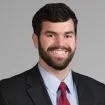On Friday, March 31, 2023, Representative Larry Bagley of Louisiana's District 7 proposed amendments to Louisiana Revised Statutes § 30:10. The bill, HB 590, extends a prior substantive change in the law that was affected by the 2012 amendments to La. R.S. 30:10. In the 2012 amendment, operators of force-pooled drilling units were required for the first time to remit royalty burdens of record to non-participating working interest owners for the benefit of those non-participating owners' lessors and overriding royalty owners prior to 100% well payout and the applicable risk charge, even though there was a lack of privity between the operator and the non-participating owners' lessors. While 30:10 was amended during the 2022 legislative session, the amendment preserved the limited obligation of remitting the royalty and overriding royalty burdens to the nonparticipating owner for the benefit of the royalty and overriding royalty owners.
The current proposed bill, however, would require operators to remit all royalty payments directly to the lessors on behalf of nonparticipating working interest owners prior to well payout, i.e., during the recoupment of costs, and the statutorily authorized risk charge. As was the case in 2012, this proposed amendment would also extend this direct payment requirement to any overriding royalty interests burdening the nonparticipating owner's lease.
This amendment represents a further departure from pre-2012 law, which never required unit operators to remit any burdens to non-participating working interest owners or their lessors prior to well payout and recovery of the applicable risk charge. Further, it would be a departure from present law, which only requires the operators to remit such payments to the nonparticipating owner for the benefit of its lessors and overriding royalty owners. In turn, the nonparticipating owner is responsible for its own lease burdens.
The proposed change could create additional administrative hurdles and litigation risks to the operator, who would in effect assume the role of the lessee on behalf of the nonparticipating owners and potentially become directly answerable to lessors in the unit in the event of a royalty dispute. Further, this amendment could remove the flexibility of operators and nonparticipating working interest owners to reach their own agreements to manage the revenue earned from the unit well. The current version of the bill fails to expressly address how an operator may be compensated or made whole by the non-participating owner for which it remitted those same royalty burdens. In other words, who will be the ultimate party responsible for funding the non-participating owner's royalty burden during the riskiest part of the venture of drilling a well: the non-participating owner who agreed to do so or the unit operator without contractual privity but a statutory duty to remit another's royalty burden? Perhaps time will tell.
The 2023 Regular Session begins on April 10th. Liskow & Lewis attorneys will be monitoring this bill through this legislative session.
Disclaimer: This Blog/Web Site is made available by the law firm of Liskow & Lewis, APLC ("Liskow & Lewis") and the individual Liskow & Lewis lawyers posting to this site for educational purposes and to give you general information and a general understanding of the law only, not to provide specific legal advice as to an identified problem or issue. By using this blog site you understand and acknowledge that there is no attorney client relationship formed between you and Liskow & Lewis and/or the individual Liskow & Lewis lawyers posting to this site by virtue of your using this site. The Blog/Web Site should not be used as a substitute for legal advice from a licensed professional attorney in your state regarding a particular matter.
Privacy Policy: By subscribing to Liskow & Lewis' E-Communications, you will receive articles and blogs with insight and analysis of legal issues that may impact your industry. Communications include firm news, insights, and events. To receive information from Liskow & Lewis, your information will be kept in a secured contact database. If at any time you would like to unsubscribe, please use the SafeUnsubscribe® link located at the bottom of every email that you receive.
The content of this article is intended to provide a general guide to the subject matter. Specialist advice should be sought about your specific circumstances.




